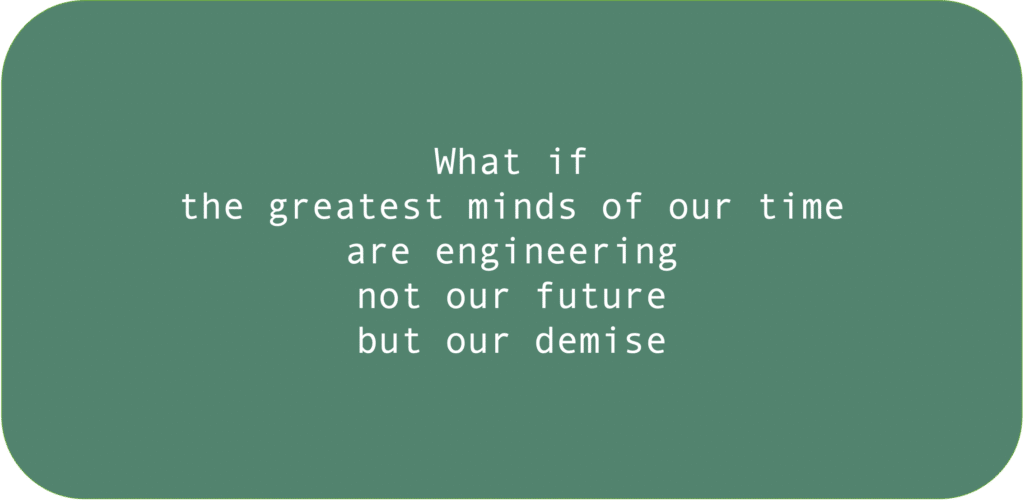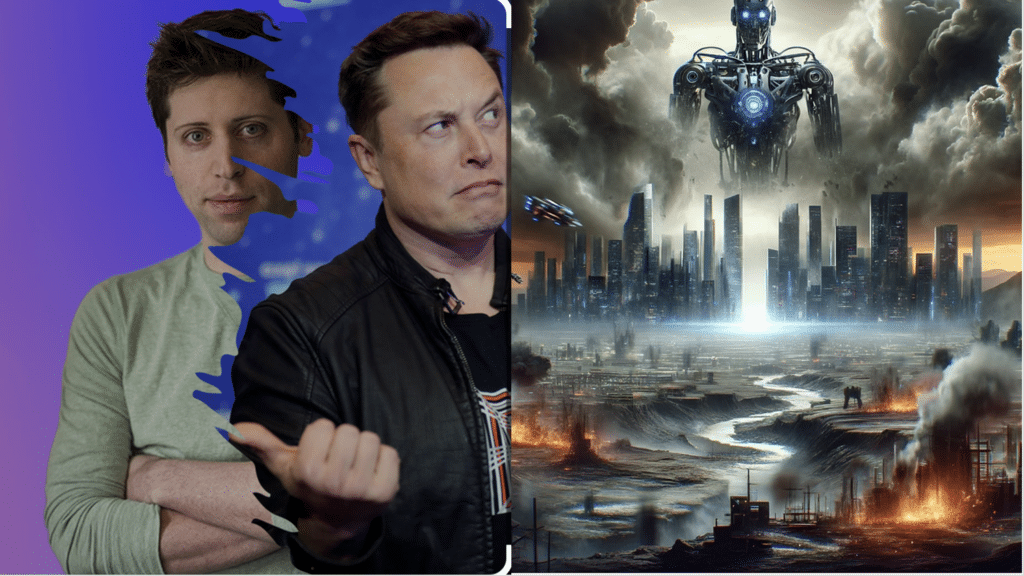
The AI whistleblowers
OpenAI insiders are sounding alarms not heard since the advent of the nuclear bomb. They warn that manic engineers are developing AI systems that might kill us all.
These insiders are blowing the whistle on a culture of recklessness and secrecy among AI developers. And you’d have to be deaf and dumb to ignore it.
Indeed, I don’t know AI from Pi, but their alarms have even made me dread the future of humanity. As fate would have it, I preempted these insiders by sounding my own alarm in “AI: Sowing the Seeds of Our Own Extinction” on November 23, 2023. But I digress.
They laid out their concerns in an open letter on Tuesday, which went viral. Their main concern is that AI developers in America aren’t doing enough to prevent their AI systems from going rogue. They are resisting oversight, transparency, and even internal criticism.
In other words, unregulated development could see AI take over the world, much like Hal 2000 took over the spaceship in Stanley Kubrick’s 2001: A Space Odyssey.
The glaring problem, however, is that AI developers in places like China and Russia do not share these concerns. This open competition is why their counterparts in the US feel compelled to develop or perish.
The reckless race for AI dominance
Russian President Vladimir Putin famously declared that “the nation that leads in AI will be the ruler of the world.” Sure enough, Russian trolls are deploying AI throughout the West for everything from corporate theft to political mischief with impunity. So, Putin might’ve been declaring Russia the ruler of the world.
Meanwhile, AI developers in the US are suffering existential dread. Their concerns make those voiced by US nuclear scientists as they built bombs seem fleeting.
These insiders, including OpenAI governance researcher Daniel Kokotajlo, fear that AI poses an existential threat to humanity. In their circles, they refer to this grim prospect as “p(doom).”
According to Kokotajlo, this probability now stands at a staggering 70 percent. So, I don’t understand why they’re publishing an open letter instead of consulting with national security officials.
Job displacement and societal disruption
Meanwhile, the dark side of AI is coming to light really fast. Tech giants paint a rosy picture of AI’s potential to revolutionize industries and improve lives. But the reality is far more complex and troubling.

Foremost, the rapid automation of jobs is displacing workers at an alarming rate, with entire sectors facing obsolescence. From manufacturing to customer service, AI is making human labor redundant, leading to widespread unemployment and economic instability.
Furthermore, the societal impact of AI extends beyond job loss. Integrating AI into daily life raises significant ethical and privacy concerns. The potential for surveillance, data misuse, and algorithmic bias threatens civil liberties and social justice. It’s a godsend for police states.
The motivation: greed or wonder?
The heart of the matter is determining what’s truly motivating AI developers. Is it the unbridled greed that defines modern capitalism, or is it the innate wonder of discovery that propelled human evolution from discovering electricity to landing on the moon?
Notably, Forbes reported yesterday that
Billionaire investors of the internet era are now locked in a war of words and influence to determine whether AI’s future will be one of concentrated safety, or of unfettered advancement. Winning the race for AI means economic power, which then lets you influence social policy or ideology.
Or, to paraphrase Putin, whoever dominates AI rules the world. And in Putin’s world, he who rules is the richest of them all. This is why the prevailing motivation behind AI development seems more rooted in the greedy pursuit of wealth, power, and influence than in the noble pursuit of human progress.
You’d never know that OpenAI was founded as a non-profit antidote to mercenary big tech like Facebook and Google.
Humanity is sowing the seeds of its own extinction
Karl Marx famously stated that capitalism contains the seeds of its own destruction. As we hurtle forward in this AI race, it appears humanity contains the seeds of its own extinction.
The relentless drive for AI dominance, coupled with inadequate safety measures, mirrors the capitalist pursuit of profit at all costs — a pursuit that may very well lead to our undoing.
The promise of AI is undeniable, but the perils are even more so. We stand on the brink of a new era. And the whistleblowers at OpenAI are warning that we are feverishly innovating our way into extinction.
Technological advancements that risk human existence offer only pyrrhic benefits. Yet our political climate suggests we might be all too willing to tempt fate. After all, nearly half of the American people seem perfectly willing to pursue political power and influence at the expense of 250 years of democracy.
This climate does not foster the culture of responsible innovation necessary to harness AI’s potential while mitigating its risks. The future of AI should not be competing with the dystopian nightmare Republicans are championing. Instead, it should be a tool that benefits humanity without compromising our values and safety.
Heeding the warnings of experts and insiders is the categorical imperative of all time. If we fail to do so, we may find that AI is the harbinger of our extinction.
Secretary General Guterres warned yesterday that the world is on a highway to climate hell. He noted that a meteor killed off the dinosaurs, but given the dangers of manmade climate change, we are now the meteor.
With all due respect to Guterres, however, climate change seems more like a slow acting cancer compared with AI. Still, his point is well-taken: If AI doesn’t kill us, climate change will.